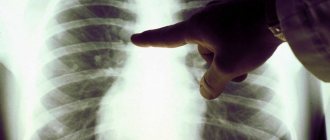In this article we will tell you:
- Stress concept
- Psychological theories of stress
- Types of stress conditions
- Psychological causes of stress
- Stages (phases) of stress
- Psychodiagnostics of stress/Symptoms of stress
- Methods for mild correction of stress
- Prevention of stress conditions
Psychology of stress - why is it important to know as much as possible about it? It's simple. The pace of life has become increasingly faster lately, and stress – both physical and psychological – is constantly growing. It is not surprising that being in a permanent state of stress has become almost the norm for many people.
Stress concept
Stress is a nonspecific response of the body to any change in conditions that requires adaptation. In simple words, some changes in the external environment require us to adapt. It got colder outside, warmer, we moved to a different climate, met other people - all this requires physical and mental effort from us. In general, this phenomenon can be described as stress. If adaptation occurs, it means there is stress.
The concept of stress is translated as load, tension, pressure, a state of increased tension, and it is so. But not every state of tension is stress. Only when you need to turn on the body's reserves for adaptation.
Stress is our internal mechanism of adaptation of the body and its way of survival.
If a person steps on glass with his heel, a stress response will begin in his body. That is, stress is an adaptation mechanism itself. The body begins to make some changes in order to adapt to this situation. He notices that there is glass in the heel, thickens the blood so that it begins to clot and prevent blood loss.
But if the system of reactions to stress and attempts to adapt to it remains turned on for too long, this leads to illness.
Stress is anything that disrupts our homeostatic balance. Homeostasis is the body’s self-regulation system, which allows us to maintain consistency within our systems. Usually here we are talking about maintaining body temperature, blood glucose levels, approximately the same blood pressure and various other processes within the body.
When stress somehow upsets our balance, the body, with the help of neurotransmitters, hormones, and the nervous system, tries to adapt to this and restore balance back.
If, in the case of animals, stress is only a violation of the homeostatic balance that already exists at a given time, i.e. This is a factor that is affecting right now, then everything is more complicated with a person. When a wild dog Dingo grabs a jerboa by the spine, this is a stress factor for him. In the case of a person, everything is different; it may also be the thought that the homeostatic balance may be disturbed, that is, this is not stress itself, not the stress factor itself, but thoughts about what could happen.
Stress. And ways to deal with it
Stress. And ways to deal with it.
In our stressful times, it is no longer a secret to anyone that constant nervous and physical tension leads to overwork and, as a result, causes stress.
What is stress?
The term “stress” was first introduced into medical science by Hans Selye, who characterized this phenomenon as follows: “Stress is a nonspecific response of the body to any demand presented to it.”
Thus, stress is a natural reaction of our body to external stimuli. These could be: noise; conflict situations at work, at home, with children; death of a relative; divorce; imprisonment; serious illness, and also – paradoxically – a wedding; birth of a child; promotion up the career ladder.
Stress can be caused by worries about the inability to pay bills, provide yourself and loved ones with the necessary things, problems in social life: economic downturn, discrimination, etc.
The cause of stress can be almost anything - from a technological disaster to a drop of rain unexpectedly falling on your head.
Stress is not about WHAT happened to you, but about HOW you perceive IT.
Even one harsh word can cause stress. At the same time, each of us reacts to stressful situations in our own way.
How does a person feel about this? First comes overexcitation of the nervous and endocrine systems. A person becomes aggressive, hot-tempered, and has poor control over his emotions. Then the body's resources are depleted, excitement is replaced by apathy (decreased mood), leading to depression. Efficiency decreases, weakness and drowsiness increase, and health deteriorates.
The most common causes of stress are unpredictability, lack of control, and hopelessness. These could be exam situations, the need to go to the authorities, public speaking, traffic jams, and even information on television.
In our high-speed age, everyone is in a hurry to get somewhere, trying to do everything in time. Each person develops his own ideas about the world around him, develops a system of requirements, and forms his own needs and desires.
The discrepancy between reality and our dreams creates dissatisfaction.
But it’s one thing when it evokes a desire to improve and develop further in order to achieve a goal, to grow mentally in order to understand what stress teaches.
It’s another matter when there is aggression towards the world around us, which has not lived up to expectations.
The stressfulness of a situation, first of all, depends on how we treat it. Thus, the more positive a person is, the less stressed he is, and a negative attitude is the key to stress. Every day we are faced with negative emotions. For example, the day begins with waking up from the hated sound of an alarm clock, then a trip on public transport, bad weather, etc. And many of us reach a state of irritation, i.e. a stressful state is treated as a norm of life.
Many people will experience symptoms of stress: poor concentration, aggressiveness, anxiety for no reason, insomnia, depression.
The human brain does not distinguish between a real threat and an apparent one, so whenever a situation seems dangerous, it reacts as if it were a real threat. The more often the environment seems hostile, the more time the body remains in a state of combat readiness. Chronic stress is the result of constantly being in an environment of complete danger, which is precisely our unstable business world.
Our body is strong and resilient, it has tremendous ability to recover, but only if the mind works clearly and correctly. Everything that happens in our head, what we think, what we imagine, affects our state, and this happens automatically, in addition to our consciousness.
Who can help you overcome stress??
It is very important to try to cope with your stress yourself and in a timely manner.
It is important to remember here that the stressor itself is only a reason for the onset of stress, and we ourselves make it the cause of the neuropsychic experience.
For example, for one person an overturned cup of tea or coffee or other liquid is a trifle, it can be quickly removed, but for another it is a natural disaster.
In other words, the stressor is the same, but the reaction to it is completely different.
C stressors can be divided into three categories.
The first is stressors that are practically beyond our control. These are prices, taxes, government, weather, habits and characters of other people. Of course, we can be nervous and swear about a power outage or an incompetent driver causing a traffic jam, but other than increased blood pressure and adrenaline levels in the blood, we will not achieve anything. It is much more effective at this time to use muscle relaxation techniques, various meditation techniques, breathing exercises or positive visualization techniques.
The second category is stressors that we can and should influence. These are our own unconstructive actions, the inability to set life goals and determine priorities, the inability to manage our time, as well as various difficulties in interpersonal interaction.
The third category is events and phenomena that we ourselves turn into problems. This includes all types of worries about the future, as well as worries about past events that we cannot change.
Severe stress can lead to mental trauma and sometimes serious illness. And sometimes no external influence is needed for its occurrence, just one thought is enough.
How can you tell if a person is truly stressed?
Unlike anxiety and depression, stress most often goes away with the reason that caused it. For example, a person whose stress was caused by work can easily get rid of it during vacation. What if the stress doesn’t go away even in a new environment? In this case, we are no longer talking about stress, but about anxiety, which can develop into depression. Depression differs from stress and anxiety in that in this state a person’s activity decreases, a loss of strength is felt, and interest in everything disappears. Many people constantly live in a state of stress, not realizing the causes of their ailments and diseases. And it’s all because of endless everyday problems and the struggle with everyday difficulties. Men, women and children perceive stress differently due to their physiology and position in the family and society.
Mark the questions to which you would answer yes.
1. Do you often feel like crying?
2. Do you bite your nails, stamp your feet, or twirl your hair?
3. Are you indecisive?
4. Do you feel like you have no one to talk to?
5. Do you often get irritated and withdraw into yourself?
6. Do you eat when you are not hungry?
7. Do you feel like you can't cope with anything?
8. Do you feel like you are about to explode, do you often fly into a rage?
9. Do you drink alcohol or smoke to calm down?
10. Do you suffer from insomnia?
11. Are you constantly in a gloomy mood and suspicious of the intentions of others?
12. Do you drive at high speeds and often take risks?
13. Have you lost interest in sex life?
Check your results:
If you answered yes to five or more questions, then your nerves are on edge, you need to take some steps to correct this situation. You might even need to see a doctor.
Recommendations for dealing with stress.
First of all, stop. Ask yourself: “What is happening? What is the reason? What does this situation want to tell me and show me?” It is important to know that stress is a reaction not to a fact, but to the meaning assigned to it. That's why people react so differently to the same event. Next, we will try to find the reasons for this condition, changes in the situation for the better and the choice of optimal behavior. Ask yourself: “Why am I doing this? How much do I need it? Is it possible to do without this? If you identify a behavior pattern, you can try to change your attitude towards stress.
The next step is anti-stress protection. What do people usually do when they feel bad? They run to a friend and cry into their vest, smoke heavily to calm their nerves, or abuse alcohol. But if you constantly “load” your friends, you can lose them. Cigarettes several packs a day will simply make you disabled, and alcohol will turn from an anti-stress medicine into a problem that is not even commensurate with your stress. Of course, the optimal way to get rid of prolonged stress is to completely resolve the conflict, but this cannot always be done on your own. In such cases, you should seek help from a psychologist or psychotherapist.
Anti-stress techniques.
The techniques are easy to use, but they are not universal. Therefore, everyone can choose for themselves exactly what they like, what suits them best or what helps them.
Stress can be reduced or even prevented by distracting oneself from the situation. Switch your thoughts to another subject. So, if you constantly think about an event that made a strong negative impression on you, stressing yourself out, giving all your energy to these thoughts, then you are creating a stressful situation for yourself that can lead to psychological trauma. Try to look at the situation with a sense of humor. Laughter leads to a decrease in anxiety, muscles relax, and heartbeat and blood pressure normalize. Stress is a source of very strong energy, which means the body requires action. You can use the gym, where you can work out until you sweat, you can tidy up your apartment, beat a pillow, smash dishes, violently beat your mattress with a tennis racket, etc. This energy cannot be suppressed. Just act, do whatever you want, but preferably for the benefit of yourself and your family. Another way to deal with stress is relaxation. Using this method, you can partially or completely get rid of physical or mental stress. It is easy to master these methods, but your motivation is very important, i.e. desire and understanding of why you need it. The goal of the exercises is complete relaxation.
There are people who lose their appetite due to stress and begin to lose weight because the biological reactions that trigger stress consume a lot of energy. But for most people, stress causes the opposite reaction; they start eating more and eat stress. They eat more chocolate, cakes, sweets, and other foods rich in sugar and fat. In the meantime, there are foods that provide nutrients and counteract stress.
Anti-stress products.
The fact that the quality and quantity of food affect our health and condition has long been beyond doubt. Products that contain tryptophan can quickly improve your mood. This amino acid, which in the body as a result of biochemical reactions turns into serotonin - the “happiness hormone”. Surely, many have heard about the miraculous properties of chocolate. But dark chocolate has more beneficial properties. It will help cope with chronic fatigue; all you need to do is eat a few slices a day. The amino acids contained in dark chocolate stimulate the pleasure centers in the brain and activate feelings of well-being and love. Cocoa beans contain many important vitamins and minerals, helping to concentrate and help improve memory and protect against atherosclerosis. A cup of cocoa perfectly tones and gives strength. Bananas are also rich in tryptophan. They can not only lift your spirits and give you a feeling of happiness, but also energize you. Bananas contain a lot of magnesium, which helps normalize sleep and reduce excitability. Due to the content of glucose, sucrose and fructose, one banana is enough to provide you with energy for 1.5 hours.
It is tryptophan that is found in whole grain bread, turkey or chicken meat, which allows you to fight both a depressed emotional state and suppression of the immune system. According to experts, foods rich in Omega-3 fatty acids also help cope with depression. These are fatty fish (salmon, mackerel, sardines, tuna, herring), nuts (especially walnuts), seeds (flax and pumpkin), and avocados. In addition, oily fish protects against cardiovascular disease and arthritis. And the vitamin D it contains in sufficient quantities can also increase serotonin levels.
Eating foods high in iron will help cope with bad mood. Iron increases hemoglobin levels in the blood, prevents anemia, fights fatigue and difficulty concentrating, gives energy and vigor, and therefore has a positive effect on mood. Red meat, liver, green vegetables (spinach, broccoli, peas), legumes (red beans and lentils), eggs are rich in iron.
Pears, apples, strawberries, quince, wild strawberries, black currants, grapefruits and other citrus fruits, celery and coriander, red pepper and basil are a first aid remedy for depression and nervous tension. The high content of vitamin C in these products allows us to consider them one of the universal means for increasing the body's immunity. Watermelon, hot peppers, and oranges are also recognized as the best natural antidepressants, each of which has a healing set of unique substances.
And, without a doubt, the real “anti-stress” product is ice cream, a delicacy that is loved by both children and adults. Moreover, it is very useful. As a dairy product, ice cream contains many useful elements and vitamins: calcium, iron, sodium, potassium, magnesium and phosphorus, B vitamins, vitamin A, D, E and P. This means it will help strengthen bone tissue, improve sleep, and skin condition and hair, increase immunity and brain activity, reduce the risk of intestinal cancer and help with dysbiosis.
Thus, there is a large assortment of valuable mood-enhancing products that can restore your vitality and positive emotions. Consider these simple recommendations so as not to bring your body and soul to destruction and illness.
Love yourself and take care of yourself,
and then no stress will be scary for you.
Psychological theories of stress
For the first time in 1915, American psychophysiologist Walter Bradford Cannon spoke about a condition that is now associated with the concept of stress, and called this reaction “fight or flight”. And he even described this phenomenon in the book “Body changes during pain, hunger, fear and anger.” The year 1915 can be considered the beginning of the European and American approach to this topic.
We recommend
“Nutrition for a healthy lifestyle: healthy foods, life hacks, menus” Read more
However, our compatriots found themselves on the same topic in the same years, and at the Military Medical Academy in St. Petersburg, Professor Korenchevsky in 1913 already described the adaptation syndrome and said that it is not a pathological, but a physiological reaction to cell damage, tissues, damage to some external environment.
The Austrian doctor Hans Selye graduated from the Medical University of Prague. Having moved to Canada, he studied the effects of the secretions of hormonal glands, which he obtained by crushing organs isolated from animals and injecting them into mice (not hormones at that time, because they were not isolated in their pure form).
He noticed a very interesting thing: no matter what hormone extract he injected into the mice, the reaction was very similar. There is a legend that one day he made some kind of technological mistake and forgot to untie his experimental mice and left them overnight.
And those mice that were injected with substances the day before and those that were not injected gave the same reaction in the form of ulceration of the gastric mucosa. The next day, some of the experimental subjects even died. And that’s when he first spoke about the general adaptation syndrome. Actually, this was the beginning of the story of stress.
Selye made very interesting conclusions that in fact only the intensity of the need for restructuring or adaptation matters. And the stimulus itself and the changes that led to the formation of this adaptation syndrome practically do not matter. The second conclusion that Selye made is that adaptive energy is available in limited quantities, given from birth.
Later, the American researcher Goldstone in 1952 entered into a debate with Selye and began to say that adaptive energy can be produced regardless of how much of it was given to the body at birth. It, of course, decreases in old age, but can remain in the form of adaptation capital.
Gradually, this topic began to develop from the organismic and cellular concepts, with which Selye began, into the social concept. From one experiment on mice, entire directions in biology, medicine, sociology and even politics related to the topic of stress have developed.
Psychological causes of stress
Stress can have a number of causes: biological, chemical, physical and, of course, psychological. With the latter, things are not easy. The psychological causes of stress are so diverse that it is simply impossible to list them all. Each person is unique: his way of thinking and habitual patterns of behavior together give a unique picture of his personality and a set of probable reactions to stressful situations. There are a lot of such reactions.
Stress is caused by internal and external problems
. External are various life situations that a person has the ability to control. These could be financial difficulties, relocation, difficulties at work or in your personal life, etc. Internal causes of stress arise in the depths of the human mind and often have nothing to do with reality; the person himself invents them. This may be due to constant blues, a pessimistic attitude, unfulfilled desires, lack of self-love, self-esteem, and self-rejection.
Psychology identifies eight causes of stress, which are the most significant for a person and have the greatest impact on him.
- Death
. When a loved one passes away, few people can maintain their presence of mind and continue to live a normal life. This is the most powerful psychological cause of stress. Anticipation of death (for example, of a sick relative) is also a cause of powerful emotional stress.
- Finance
. For a huge number of people, financial difficulties are the main cause of stress.
- Lack of self-expression
. Most people strive to express their own “I,” but not everyone can do this.
- Lack of control over the situation
. This can concern both your own life and the lives of loved ones. The inability to control everything weighs on some people and plunges them into a state of stress.
- Disease and insecurity
. Fear of getting sick, experiencing pain, fear of death - all this leads to a loss of peace of mind, a person ceases to feel safe.
- Job
. For a huge number of people, work is a powerful source of stress. Difficult responsibilities, management pressure, difficult clients - all this keeps you in suspense, forces you to constantly think, analyze, and make plans.
- Friends and loved ones
. Communication with loved ones, relatives, and friends is always emotionally charged, which means it can provoke stressful situations.
- Family
. If things are not going smoothly in relationships with family, a person is unlikely to feel comfortable.
We recommend
“Physiology of stress and ways out of it” Read more
Any event can serve as a starting point for stress. Both women and men can become hostage to their psychological difficulties. It is important to remember that the primary task in a situation of constant emotional stress is to find out the cause of the uncomfortable state. By eliminating it or looking at the situation from a different angle, a person begins to feel much better. Without this, life can turn into a constant battle with windmills.
Diagnosis of stress
If you find that you are having trouble coping with stress or your reaction to a particular event is more intense or lasts longer than usual, you should see a therapist for help. It is likely that the first questions that a specialist will pay attention to will sound like this:
Has any traumatic event occurred in your life within the last 3 months?
Do you find that your stress levels are higher than usual when you react to situations at home or at work?
Is your stress related to some kind of grief or experience?
If you have a diagnosed disorder that may be related to stress
Based on your answers to these and other questions, the therapist will prescribe a course of treatment for you, possibly with medication, or make recommendations that may help.
Symptoms of stress
How to assess a person’s condition when maladjustment has already set in, and when you need to start worrying and give some recommendations? It is important to understand whether stress has set in or not yet. Let's talk about diagnostic methods.
- By appearance
The person has puffiness, watery eyes, slightly bulging eyes, may be sweating, may have sweat on their face, and may be malnourished or overweight in what is known as chronic distress. The presence of these criteria may indicate that a person is in the first phase of stress.
- For somatic complaints
A person complains about his health. He can talk about high blood pressure, which increased suddenly after some event or experience. He may complain of a sudden rapid heartbeat, shortness of breath, constipation, a feeling of bloating, pain in the middle under the ribs, or a sharp increase in appetite, a feeling of insatiability - “I can’t get enough, I eat, I eat, but I feel like I’m not getting enough.”
Signs of stress can also include frequent respiratory viral infections, the urge to urinate, episodes of urinary incontinence that suddenly begin to occur after events or experiences, decreased erectile function in men or sexual desire in women, pain in muscles and joints.
- By behavior
Based on behavior, we will notice some desire to reduce the area of support; the contact area is a manifestation of post-traumatic stress disorder.
“You-statement” is very typical for a person who is in a situation of stress and physical trauma as well.
- Family history
In the family system, a person who has asked for help may find out that there are suicidal people - people who have committed suicide. Perhaps a person will say that he was not breastfed at all or that his mother gave up breastfeeding early. This is a family history factor that leads a person to tend to react with distress to external circumstances. This is prematurity - the more severe a person's history of prematurity, the more prone he is to distress reactions.
A sign of stress may be the presence of a dysfunctional family in which violence is practiced, alcoholics and drug addicts, people who have been in prison. These are panic disorders in the client or his family members.
- Predisposing personality traits
This is hyper-responsibility, pedantry, so-called perfectionism - the desire to do some action perfectly, this is some kind of mental rigidity - an unwillingness to adapt to circumstances, a desire to do it your own way, to insist on your own. This is alexithymia - the inability to understand, express feelings and basic anxiety.
- Mental complaints
This is a changeable mood - from irritability and anger to complete apathy, the feeling that nothing interests me.
These are insomnia, impaired memory, attention, anxiety higher than in usual conditions, the appearance of panic attacks, asthenia, when you don’t have enough strength for some basic actions, you don’t want to get up, drink water, brush your teeth, or go to work. This is hyperinhibition, when a person suddenly slows down and stops reacting in the usual way to familiar situations. And these are psychotic breakdowns, when suddenly a person begins to get offended, cry, scream, swear, which was not typical for him.
- Events
In general terms, these are events associated with changes in life. Here it is important to understand what is important for a person and what is not so important, what kind of event can throw him out of balance so much as to cause stress.
What is stress?
Stress is the human body's reaction to the pressure of a particular situation or event. This reaction can be felt on a physical, mental or emotional level.
All people experience stress at some point in their lives. It can be caused by work, a sudden illness, or a money problem. These are common triggers. According to the results of an American study, about half of the population experiences moderate stress.
Stress makes a person focus and become more aware of their surroundings, which in some cases gives a person the strength and opportunity to do something better, so not all stress is bad.










